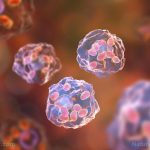
Good for pets, too: Herbal treatment made from ferns can treat kidney stones in pets
Saturday, October 13, 2018 by Ralph Flores
http://www.naturalnewspets.com/2018-10-13-good-for-pets-too-herbal-treatment-using-ferns-can-treat-kidney-stones-in-pets.html

It’s not just people who benefit from herbal medicine: Pets could use it as well, to great effect, according to a study published in the American Journal of Animal and Veterinary Sciences. In his paper, Sri Murwani of Brawijaya University in Indonesia suggests using the water clover (Marsilea crenata) — a type of fern native to Southeast Asia — to prevent kidney damage of pet animals with urolithiasis.
Urolithiasis is a condition marked by the buildup of mineral crystals in urine. The crystals, which people refer to as stones, develop in any part of the urinary tract, including the kidneys, urethra, bladder, and ureter. In animals, symptoms of urolithiasis can range from irritation in the lower urinary tract and mucosal surfaces to chronic kidney disease and even death. There are various factors that contribute to the formation of stones, with an animal’s diet being one of the key determinants. In particular, the two main forms of mineral crystals — struvite and whewellite — are influenced by the type of diet that an animal has.
In his study, Murwani looked at the different biological activities of the water clover, and how it can help with urolithiasis in animals. In particular, he investigated the diuretic, antioxidant, and anti-inflammatory properties of the plant using animal models with urolithiasis.
“[M. crenata] contains active chemical substances such as potassium ion (K+), flavonoid, alkaloid, and polyphenol,” he posited in his report. “Its potassium ion and flavonoid possess diuretics functional, as antioxidant and anti-inflammation, whereas its alkaloid and polyphenol [have] antioxidant [activities].” He also added that the water clover also contains chemical substances that have a synergistic effect in destroying crystals and even preventing the condition.
To mimic the condition, male Wistar rats were given a combination of ethylene glycol and ammonium chloride for 10 days. They were then assigned to groups, with some groups receiving a decoction made from the plant’s leaves and the stalks. Biomarkers linked to the condition, including blood urea nitrogen, were measured to determine the efficacy of the treatment. In addition, other biomarkers like serum creatinine, urine creatinine, and creatinine clearance were studied as well.
From the results, rats that were treated with the water clover extract showed a decrease in blood urea nitrogen, which indicated improved kidney function. According to Murwani, the primary chemical responsible for the destruction of the crystals is potassium ion, a compound present in the extract. In particular, the introduction of the ion transforms the crystal into potassium oxalate, a water-soluble mineral. The flavonoid in water clover acts as a diuretic, which allows the crystals to be flushed easier. Moreover, the results of the creatinine markers revealed that water clover extract protected the kidney tissue from inflammation and free radical damage, despite the presence of urolithiasis. Creatinine clearance, which reveals if the kidneys can efficiently remove creatinine from the blood and flush it out of the system, also improved with water clover treatment.
He concluded that using the juice from the leaves and the stalks of the water clover can improve kidney function in animals with urolithiasis, based on the decrease in blood urea nitrogen and increase in creatinine clearance. (Related: High phosphate intake, typical in moist food formulations, can damage kidney function in cats, study finds.)
Learn more natural ways to take care of your pets at PetHealth.news.
Sources include:
TheSciPub.com [PDF]
Tagged Under: Tags: alternative medicine, animals, goodhealth, goodmedicine, kidney stones, Marsilea crenata, natural cures, natural medicine, pet health, Pets, Urolithiasis, water clover





